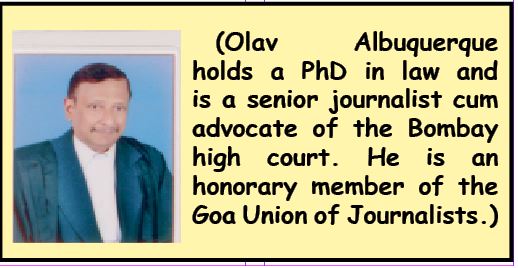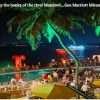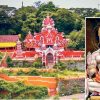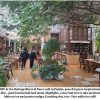Goa is abuzz with excitement as vintage bike and car owners, users, collectors and fans are decking […]
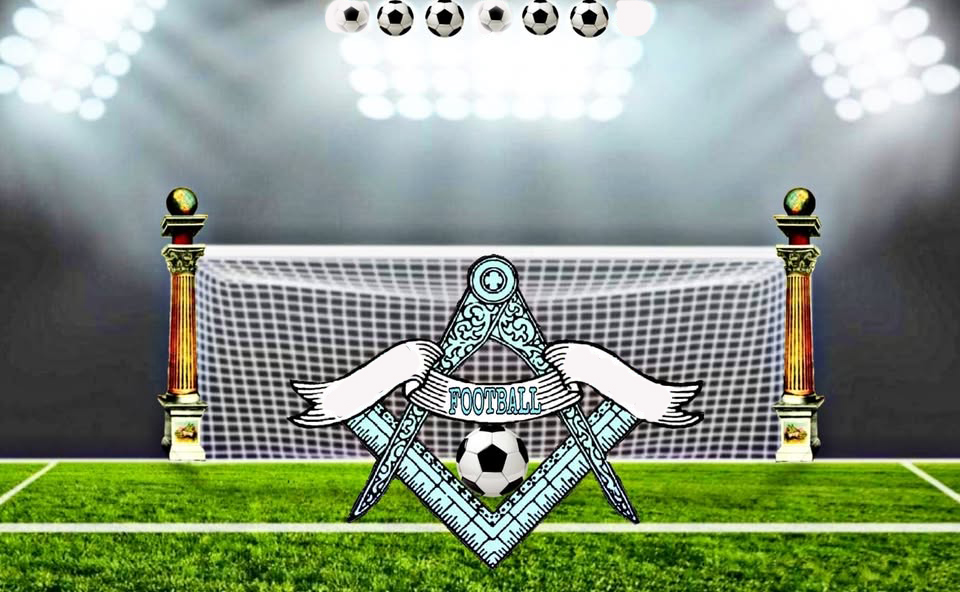
FREEMASONS, FOOTBALL & CATHOLIC CHURCH! By Dr Olav Albuquerque
LAW, May 24- May 30, 2025 May 23, 2025FOOTBALL, Freemasonry and the Catholic clergy are intertwined because it was in 1863 when the Football Association (FA) was formed in the United Kingdom at the Freemasons’ Tavern, on Great Queen Street in London, now known as the New Connaught Rooms next door to Freemasons’ Hall.
An excellent history of the entire game is to be found in a book titled “The Grass is Green in Goa” which encapsulates 40 years since the founding of the Goa Football Association on December 22, 1959. This book traces the history of the game from its ancient origins in China and Japan, Greece and Rome until William the Conqueror brought football to England with the Norman invasion.
Two other books, “Footprints in the Sand,” which gives a history of Salgaocar, FC and “Golden Eagles” that gives a history of Dempo SC complete the trilogy of books on Goan football. Marcus Mergulhao, who is the sports editor of The Times of India, has written both these books which are classics by themselves. I managed to get both these books thanks to Agee Almeida, who is the GFA secretary, and Amit Gaude who is the secretary of Salgaocar FC.
FIRST CLUB
THE first football club was set up at Sheffield in Yorkshire, England in 1857 but the rules for playing this game were enacted on October 26, 1863. The dons of various universities throughout England framed the rules for football. It was probably these same Freemason freethinkers in the British universities who decided what was off-side and how many players were to form a team. The rules and their interpretation were left to the Football Association (of the UK).
It was in 1883, that the Catholic priest, Fr William Robert Lyons, brought football to Goa from Europe. He could not have been a Freemason because this would entail automatic excommunication from the Catholic Church. He came to Siolim in Bardez taluka from Udupi which is today part of Karnataka.
Fr Lyons liked Goa so much that instead of returning to Karnataka, he set up a school in Siolim and introduced football in the curriculum, which is why this Catholic priest could well be conferred the title of “Father of Goan Football.” When St Joseph’s School was shifted to Arpora, Fr Lyons was made its first principal. He promptly introduced football in that school as well.
Later, in 1893, Antonio Francisco de Souza from Siolim, inspired by Fr Lyons, introduced football at a private English school in Assolna in Salcette taluka maintained by the Sociedade de Beneficencia e nstucao de Assolna, Velim e Cuncolim when he was the headmaster. So this how football was introduced in Salcette.
PORTUGAL’S NATIONAL SPORT
INTERESTINGLY, it was in 1893 that football was declared the national sport of Portugal. In the early days, the Seminarians of Rachol fielded football teams to play at Rachol and Margao. After they took their final vows as priests, they introduced football in whichever parish they were posted.
This is why every village in Goa has a football ground behind the church, while in some cases the church has been built over a football ground. The sport is open to all, whether Hindu, Muslim or Catholic but as of 1883, football was played in the church grounds which was adjacent to the church. Hence, the Catholic Church in Goa can rightly be said to have nurtured football in Goa.
After the first match under the new football rules way back in January 1864, a toast was drunk – how very Masonic in itself – to “success to football, irrespective of class or creed” — which is what Freemasonry teaches its members.
Several Masonic Lodges are named after their famous teams – Anfield Lodge, No.2,l215, Everton Lodge No.823, and more recently the Football Lodge No. 921.
There have long been myths about the colours, of the professional soccer team “Manchester City FC” of the English Premier League. In 1894, the club was in a financial crisis and was bailed out by the Masons, who demanded the team wear the Masonic blue on their football jerseys.
Though Freemasons do a lot of charity and humanitarian work, most Christian churches including the Roman Catholic Church warns Catholics that they stand excommunicated when they join Freemasonry. A 1983 declaration, signed by the late Pope Benedict XVI, at the time the Vatican’s doctrine chief, stating that Catholics “in Masonic associations are in a state of grave sin and may not receive Holy Communion.” They will also be denied the last sacraments unless they confess to the cardinal.
DARK SECRETS
ALTHOUGH Freemasons framed the first rules for football at the international level in the United Kingdom, their propensity for secrecy hides a dark secret. They believe in attaining salvation through their own good works which indirectly rejects the sacrifice on the cross made by Jesus Christ. This then is why the Roman Catholic Church has declared those Catholics who have joined Freemasonry should not receive holy communion, which is an affront to God as per Catholic doctrine.
Now, there is secrecy within the Freemasons so that Albert Pike, the high priest of Freemasonry, has declared that those who have joined Freemasonry should be kept in the dark and not revealed the entire secrets, although they should be led to believe they have been told all the secrets of Freemasonry.
So, what is their biggest secret? You cannot join Freemasonry unless you believe in God. That seems okay until investigative reporters like Stephen Knight in his book, “The Brotherhood” reported that the God of Freemasonry was known by the appellation of Jah-bul-on.
This was a tripartite God comprising: Yahweh — the God of the Old Testament — Baal, the demon hated by Yahweh, who emerged from the fire as a golden calf when Moses descended from the mountain carrying the 10 commandments. Baal is seen as the enemy of Yahweh. He is portrayed as a demon king with a hoarse voice, ruling over legions of demons and teaching his followers how to become invisible.
AND finally the suffix “on” referred to Oziris, the Egyptian god of fertility, agriculture, the afterlife, the dead, resurrection, life, and vegetation in the ancient Egyptian religion —anathema to Yahweh. The Freemasons insist on new entrants being theists but not revealing to them the name of the God whom they called upon while observing the rituals of entered apprentice, fellow craft and master mason.
So, there you have it. The God of the Freemasons is not the same as the God of Christianity nor that of Islam. Goans can excel in football at the national level. If they want to join Freemasonry, it is entirely their choice.
